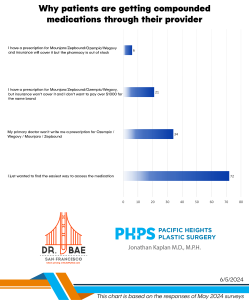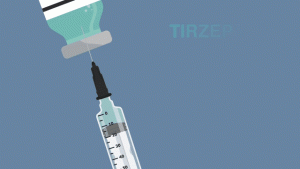
And then there were three. That’s right, three vaccines: Pfizer, Moderna and Johnson & Johnson (J&J). All highly efficacious according to Dr. Anthony Fauci. And we have these three vaccines not even a year after the first shelter-in-place orders were issued in the US. Now that they’re all available, let’s review how these three vaccines compare.
Comparison of Effectiveness
A great deal of attention has focused on the differences between Pfizer and Moderna vs the J&J vaccine. While the J&J rate of effectiveness is 66.9% and Pfizer and Moderna are 95% and 94.5%, respectively, these numbers are measuring two different end points.
The J&J figure relates to the effectiveness in preventing moderate to severe COVID-19 illness after a single dose. In fact, it was 85.9% effective against the most severe forms of COVID-19. Pfizer and Moderna were measuring symptomatic infection, not necessarily moderate to severe infection.
Rather than focusing on the numbers above, focus on the numbers below: the three vaccines’ effectiveness in preventing hospitalizations and deaths.
Risk of dying or being hospitalized after vaccination
When measuring effectiveness weeks after vaccination, the risk of hospitalization and death fell to zero when receiving any one of these vaccines. In other words, if you get sick, these vaccines with almost certainly save you from hospitalization and death. This is why consumers should not turn down the J&J vaccine if they have an opportunity to get it. Because if you wait for the Pfizer or Moderna vaccine, erroneously assuming they’re “better” than the J&J vaccine, you could contract COVID-19 and die in the meantime, a fate the J&J vaccine would save you from.
Effectiveness against variant strains
While the British and South African variants were not around during the Pfizer and Moderna trials, there’s evidence these vaccines are still effective against them. The J&J vaccine definitively offers protection against the South African variant. It was 81.7% effective against severe forms of COVID-19 in South Africa. Fortunately, these vaccines can include protection against future variants.
Number of doses required
The Pfizer vaccine requires at least 21 days in between two doses. Whereas the Moderna vaccine requires 28 days between each of the two doses. The J&J vaccine only requires one dose. However, J&J has an ongoing trial to determine if a second booster shot would increase effectiveness.
Vaccine technology
Both Pfizer and Moderna use mRNA technology that has been in development for 20 years but this is the first vaccine widely distributed using the technology. The J&J vaccine uses a viral vector technology that has been previously used in an Ebola vaccine.
They all have one thing in common. They all cause our bodies to produce the coronavirus spike protein on our cells’ surfaces, thus stimulating our immune system to produce antibodies. By being “locked and loaded” with antibodies, our body can quickly fight off a future coronavirus infection.
There is fear surrounding the mRNA technology and the erroneous concern that it can affect our genetic code and possibly fertility. The populace received reassurance that this was not the case because the mRNA particle does not enter the nucleus where our genetic code resides. This is accurate.
Ironically, the J&J vaccine, which contains DNA transported to our cells in a re-engineered, harmless adenovirus (in their natural state, adenovirus can cause the common cold), does enter the nucleus to produce mRNA that then goes on to become the blueprint for the spike proteins. While the initial acceptance of the J&J vaccine is a welcome surprise, it’s interesting that it 1) uses a real virus to transport its genetic material to elicit an immune response and 2) enters the nucleus to do so.
Safety profile
Aside from arm pain, fatigue, body aches and weakness, the FDA believes all three vaccines have favorable safety profiles. There are certainly reports of allergic reactions, but this can occur with the annual flu vaccine.
Additionally, the reactions are often due to the “packaging” of the vaccine rather than the active ingredients of the vaccine itself.
Risk of spreading COVID-19 after vaccination
Studies are ongoing. But there is increasing evidence that those who receive the vaccine do not become effective carriers of the virus with a high viral load. Therefore, they are not shedding the virus in numbers to infect others.
Cold storage requirements
Because the mRNA vaccines are so fragile, they require storage at colder temperatures. The Pfizer vaccine requires ultra-cold storage. The FDA is now allowing storage at “warmer” temperatures, citing evidence from Pfizer that the vaccine is still effective in temperatures comparable to a typical freezer.
The Moderna vaccine continues to require freezer temperature storage. In what may make distribution easier to far flung or isolated communities, the J&J vaccine remains effective with storage in a standard refrigerator.
Safety in pregnancy
Anecdotally, the Pfizer and Moderna vaccines appear to be safe in pregnancy and during lactation. In fact, the main obstetrics and gynecological trade organization, ACOG, is actively encouraging pregnant and lactating women to get vaccinated.
There is clear evidence that coronavirus infection in pregnant women is significantly more severe when compared to non-pregnant women. Additionally, there are no known instances of risk to the fetus when the mother receives the vaccine. This makes the choice of vaccination clearer from a risk-benefit perspective.
At this time, both Pfizer and J&J plan to move forward with clinical trials involving pregnant women.
Conclusion
The vaccine is not the only protection against COVID-19. Social distancing, mask wearing and hand washing are still basic CDC recommendations. When combined with these precautions, any of the three vaccines will statistically keep people safe, possibly infection free. But most importantly, they help avoid hospitalization and death. If anyone have the opportunity to receive a vaccination, don’t turn it down because of a perceived ineffectiveness of one vaccine over another. Stay healthy. Get the vaccine.

Click here for the original blog post written by Dr. Kaplan for BuildMyBod.




